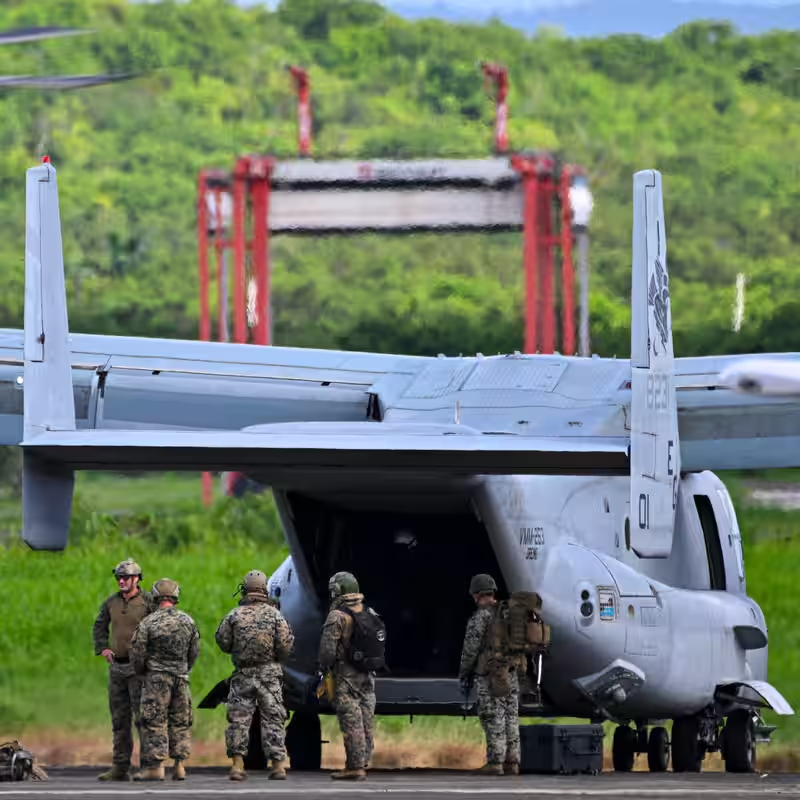Table of Contents
- Caribbean Strike: Survivors Detained Amid Escalating Campaign
- Trump Administration’s Legal Quagmire
- Guantánamo on the Table?
- Why This Case Is Different
- Sources
Caribbean Strike: Survivors Detained Amid Escalating Campaign
In a dramatic escalation of President Trump’s military-led anti-drug campaign, the U.S. Navy has detained two survivors of a recent strike on a semi-submersible vessel in the Caribbean Sea. The incident marks the first time the U.S. military has taken prisoners during this controversial operation—raising urgent legal, ethical, and policy questions.
The strike, which occurred on Thursday, reportedly killed two others aboard the vessel. Surveillance footage later revealed survivors in the water, prompting a Navy helicopter to rescue and transfer them to a U.S. warship operating in international waters. Their nationality remains unknown, and the Trump administration has not released detailed evidence confirming the vessel was involved in drug trafficking.
Trump Administration’s Legal Quagmire
Since early September, the Trump administration has conducted at least six military strikes against suspected drug-smuggling boats in the Caribbean—boasting publicly about each one and claiming the targets were part of a “war” against cartels labeled as terrorist organizations.
But unlike previous strikes that left no survivors, this incident forces the U.S. to confront a new reality: what to do with live detainees when operating under a legal framework many experts say doesn’t exist.
“This is uncharted territory,” said Brian Finucane, a former State Department lawyer specializing in the laws of armed conflict. “The administration has claimed it’s in an armed conflict with drug cartels—but Congress never authorized such a war, and international law doesn’t recognize drug trafficking as a trigger for wartime powers.”
Three Paths Forward—All Problematic
- Release the detainees: Politically risky and inconsistent with the administration’s “war” narrative.
- Transfer to civilian courts: Requires admissible evidence—likely destroyed in the strike—and proper legal procedures.
- Hold as wartime prisoners: Could lead to Guantánamo Bay—but opens the door to federal court challenges.
Guantánamo on the Table?
Legal analysts note that if the administration chooses to classify the two survivors as “unlawful combatants,” it may send them to the U.S. military prison at Guantánamo Bay, Cuba. The facility already has infrastructure for long-term detention without trial.
However, doing so would invite immediate legal action. Federal courts have previously ruled that detainees at Guantánamo have the right to challenge their detention through habeas corpus petitions. A lawsuit could force a judge to rule on whether the U.S. is truly in an “armed conflict” with drug cartels—a determination that could invalidate the entire military campaign.
Moreover, under both U.S. and international law, the International Committee of the Red Cross must be granted access to any wartime detainees—a step the administration may be reluctant to take.
Why This Case Is Different
Past strikes targeted speedboats and resulted in total fatalities, allowing the White House to control the narrative without legal entanglements. But with living detainees, the situation shifts from propaganda to precedent.
Drug smuggling is not a war crime under the Military Commissions Act, which limits Guantánamo prosecutions to Al Qaeda affiliates. And without intact evidence or confessions obtained under lawful interrogation protocols, civilian prosecution appears unlikely.
President Trump confirmed the strike on Friday during a meeting with Ukrainian President Volodymyr Zelensky, calling the vessel a “drug-carrying submarine” and dismissing the idea that those aboard were “innocent.” But he offered no comment on the survivors’ fate.
As the Navy holds the two men aboard a warship, time is running out for the administration to decide: treat them as criminals, prisoners of war, or something in between. Whatever choice is made could reshape U.S. military and legal policy for years to come.
Sources
The New York Times: “U.S. Detains 2 Survivors of Latest Military Strike in Caribbean”




